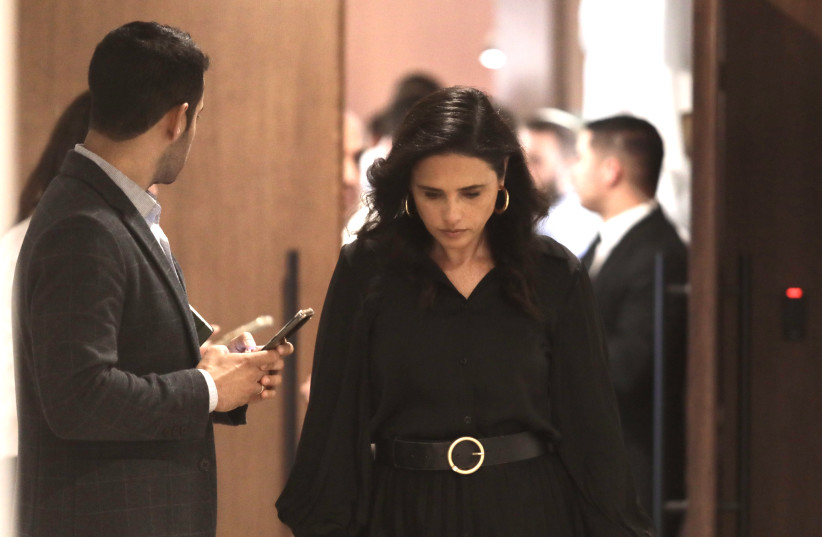The Interior Ministry must recognize civil marriages performed in Utah and recorded by video, according to a Sunday ruling by the Lod District Court.
The decision, handed down on Friday but announced by the court on Sunday, could have wide-ranging implications, including opening an additional loophole for LGBT marriages and other legally disputed unions.
Here's why it's important:
Israel has previously recognized lesbian, gay, bisexual and transgender marriage in various contexts and has extended adoption rights to LGBT couples.
What makes this case unique is that such couples in Israel might be able to have their marriages recognized without flying to the US to be married there physically.
The loophole would also apply to marriages between two people of different religions. It might also apply to other gray areas where complications arise because the Jewish state does not have the option of civil marriage. The state generally empowers Jewish, Christian and Muslim clergy to decide who can and cannot marry into their respective faiths.

What happened in Lod?
This was the case of the couple who appealed to the Lod court. One was Jewish and the other did not have a defined religion. This meant that the process of getting the marriage approved by the Chief Rabbinate became significantly harder.
While in the past, such couples flew overseas to have their marriages performed, the coronavirus pandemic made that virtually impossible.
In December 2020, during one of the biggest COVID waves, the Interior Ministry approved approximately 500 marriages by video through Utah’s new mechanism.
The petitioning couple, whose wedding took place in October 2020, just missed the ministry’s deadline.
The court said that because the ministry had already recognized Utah civil marriages by video for some couples, and because it did not have the discretion to turn down registering persons who had valid documentation from foreign countries, the ministry could not refuse them.
Where's the catch?
At the same time, the court said it made no substantive judgment about the validity of civil marriage in Israel itself or about the marriage of the couple if they had tried to get married in Israel.
In June 2021, the Population and Immigration Authority of the Interior Ministry formally informed the Lod District Court that it would not register civil marriages performed in an online ceremony in Utah for Israeli couples.
The ministry added this couple to its response to the court, saying they did not have a representative in Utah when the wedding was performed.
“The majority of the components of the wedding... relate to actions conducted in Israel,” the ministry wrote. “Most of the affiliations of this marriage ceremony are not to the state where the certificate was issued.”
So was the wedding performed in Israel or not?
The ministry said the wedding was essentially performed in Israel and that since there is no provision for civil marriage in Israel, it could not be registered in the Population and Immigration Authority.
In response to the submission, attorney Vlad Finkelshtein rejected the claim that the wedding was performed in Israel.
Speaking to The Jerusalem Post, Finkelshtein emphasized that every aspect of the wedding was performed in Utah. He noted that the office of the marriage registrar, the computer and the IP address from which the ceremony was broadcast were all in Utah.
He also noted that the issue raised by the Population and Immigration Authority – that the petitioning couple did not have a representative in Utah at the time of the wedding – was relevant to cases of marriage by proxy. In such cases, couples give others power of attorney to marry abroad in their name, which he said was not substantively different from online marriages.
The attorney further pointed out to the court that a couple that married through Utah’s marriage service successfully registered their marriage in the Kfar Saba branch of the Population and Immigration Authority.
He noted that the authority had failed to contact the relevant officials in Utah to ask them about the details and nature of the service they provide.
Jerusalem Post Staff contributed to this report.
